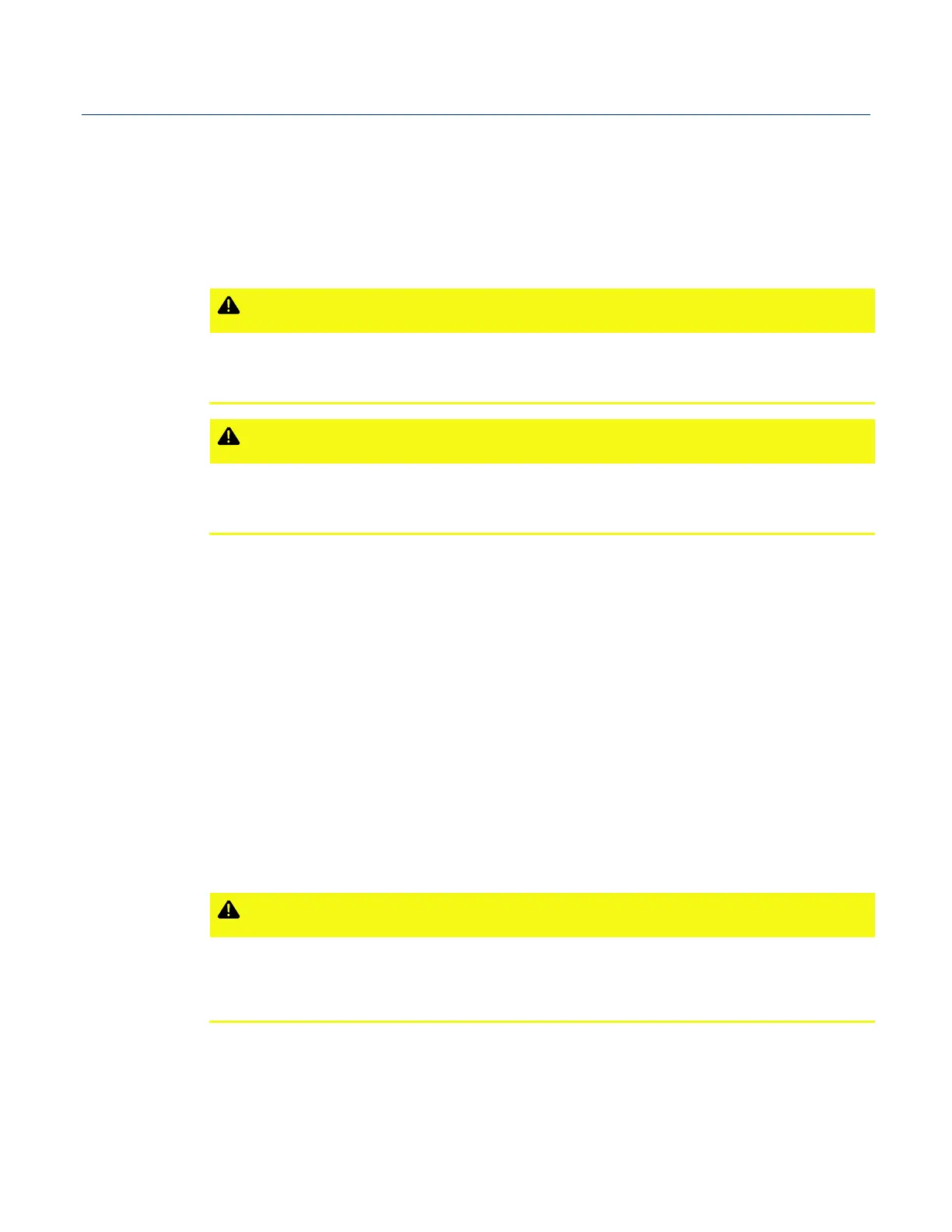FB3000 RTU Instruction Manual
D301851X012
November 2023
14 Installation
2.4 General Wiring Guidelines
The RTU’s pluggable terminal blocks use compression-type terminals that accommodate
wire between 24 and 12 AWG depending on the connector or terminal block and the
usage. Use 28 to 16 AWG wires on the 20 pin I/O connectors; use 20 to 12 AWG wires on
the power connection.
DANGER TO PERSONNEL AND EQUIPMENT
All wires must be rated for a temperature of 90
o
C or higher.
DANGER TO PERSONNEL AND EQUIPMENT
Wires used for power must have a wire gauge between 20 and 12 AWG.
When making a connection, insert the bare end of the wire (approx. 1/4" max) into the
clamp adjacent to the screw and secure the screw.
To prevent shorts, ensure that no bare wire is exposed. You can also use crimp bootlace
ferrules (18 to 24 AWG for I/O; 18 to 20 AWG for power).
Allow some slack in the wire while making terminal connections. Slack makes the wires
more manageable and helps minimize mechanical strain on the terminal blocks.
Use twisted pair, shielded and insulated cable for communications and I/O wiring to
minimize signal errors caused by electromagnetic interference (EMI), radio frequency
interference (RFI) and transients. When using shielded cable, ground all shields at a
suitable Instrument Earth connection point. This prevents circulating ground current
loops that can cause signal errors. See the FB3000 product data sheet for information
about applicable standards for EMI and RFI emissions and susceptibility.
To avoid damage to terminal blocks, exercise care when unplugging them. Gently pull
up on one end, then gently pull up on the other end, then continue alternating this way
to gradually work the terminal block out of its socket.
